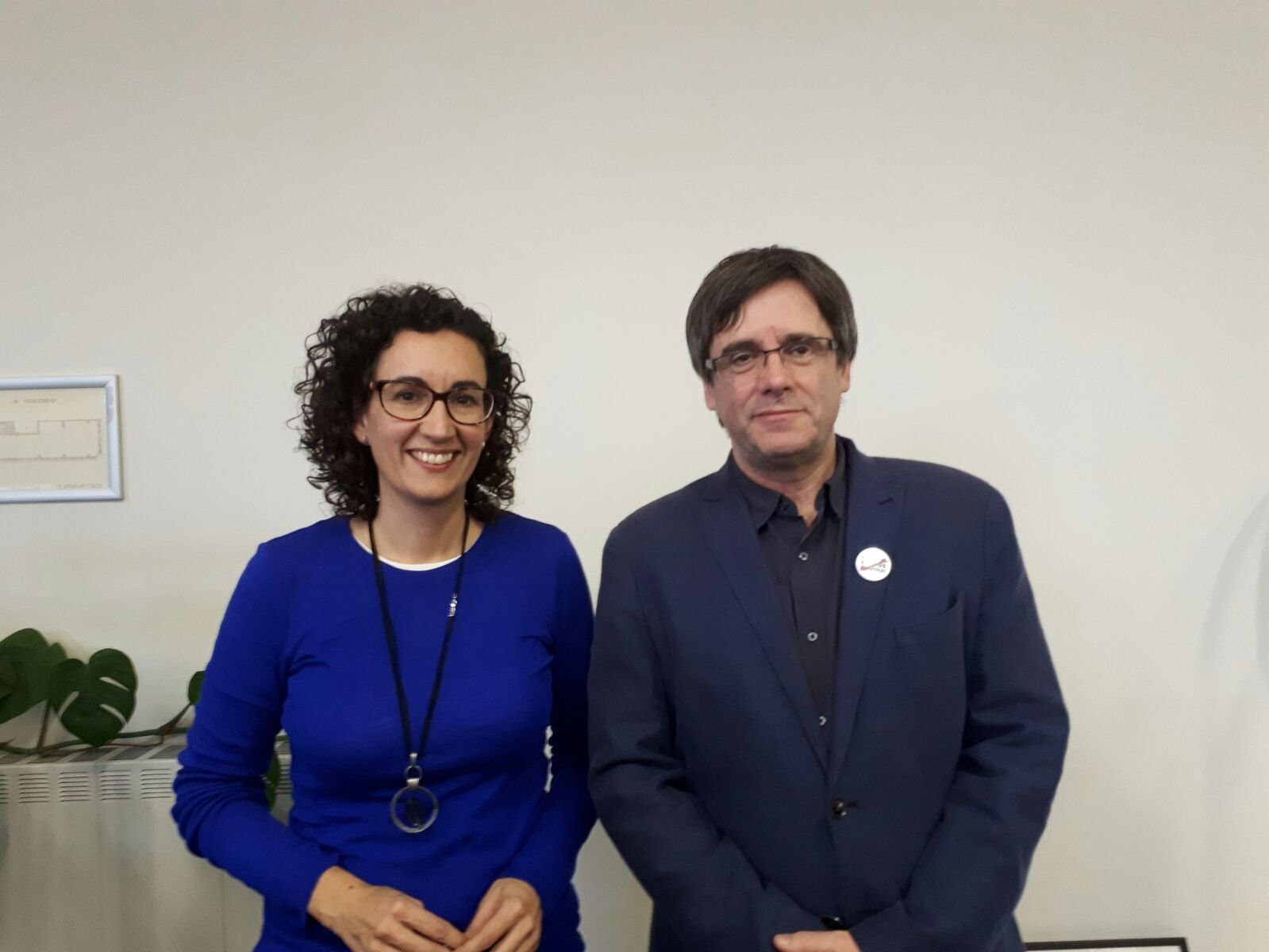More pressure has been applied by the Spanish judiciary, surgically placed and timed in relation to the proposed pro-independence amnesty law. National Audience judge Manuel García Castellón has agreed that he will also investigate Catalan president-in-exile Carles Puigdemont in the Democratic Tsunami case, opened in relation to possible terrorism offences, and has offered the MEP options of "voluntarily" appearing in the case, while he goes ahead and asks for a waiver of the politician's European parliamentary immunity to be able to prosecute him. In the resolution, which has become public this Monday, the judge also imputes other over the Tsunami protest platform, among them Republican Left (ERC) secretary general Marta Rovira. The Civil Guard delivered a new report to the judge on Friday in which it confirmed Rovira's leadership role, based only on some mobile phone messages, and now the judge has taken the step of prosecuting the also-exiled politician.
The cause of Democratic Tsunami is one of those that would be wiped out by the draft amnesty law for pro-independence prosecutions that the Spanish Socialists (PSOE), Together for Catalonia (Junts) and ERC are trying to agree on. Those investigated by Tsunami are: Oriol Soler, Xavier Vendrell, Marta Molina, Josep Campmajó, Jesús Rodríguez, Jaume Cabani Massip, Oleguer Serra, Marta Rovira Vergés, Josep Lluis Alay Rodríguez, among others, and, as in the case of Puigdemont, the judge also offers Rubèn Wagensberg that option of appearing voluntarily in the case because he also has immunity as an ERC deputy in the Catalan Parliament.
No direct evidence
The judge maintains that "Democratic Tsunami, circumstantial evidence suggests, was a structured, hierarchical organization with an intention of permanence, directed by several people with different roles who extended their scope of action over certain fields and with other people in their charge, the essential purpose of which was to subvert the constitutional order, destabilize the state economically and politically, and seriously alter public order through massive social mobilization".
There is no direct evidence against president Carles Puigdemont. In the resolution, the National Audience investigating judge No 6 maintains that president Puigdemont "is one of the people who is involved through circumstantial evidence, in view of the analysis of the agenda of this office head, Josep Lluis Alay, who attended meetings that were held in Geneva from August 29th to 31st, 2019, and at which Democratic Tsunami action could have been planned". His name - he adds - appears in a message that appears in a device analysed that belonged to Alay, which was sent by journalist Jesús Rodríguez: "On Monday, August 26th, the profiles will be made known of the Democratic Tsunami campaign as a response to the ruling of the Supreme Court. I assume that President PUIGDEMONT will be informed directly by ÒMNIUM. I am forwarding it to you so that you have a record." He adds that the event in Geneva was also attended by Marta Vilalta, spokesperson for ERC.
Terrorism and disorder claims
Despite the scarcity of evidence, the judge concludes that, with the Spanish crime of sedition having been struck out, there is a basis for investigating the Tsunami events as terrorism, although also for a crime of terrorism concurrent with one of disorder. He argues that "the analysis of the facts presented does not allow it to be excluded, at all, that Democratic Tsunami could be considered a terrorist group", it still remaining to be clarified whether its material actions matched any of the crimes of Article 573 of the Spanish penal code, quoting, in a long list, those against life or physical integrity, freedom, moral integrity, sexual freedom and integrity, property, natural resources or the environment, public health, catastrophic risk, fire, document falsification, crimes against the Crown, attacks with and possession, trafficking and storage of weapons, ammunition or explosives, ... and the seizure of aircraft, ships or other means of collective transport or goods. In addition, he maintains that "it is particularly significant to emphasize that there are sufficient indications of the classification, at least, of the crimes of document falsification and damages, in addition to the crime of [causing a] risk of catastrophe."
In the resolution, the judge also cites ERC spokesperson Marta Vilalta and EH Bildu leader Arnaldo Otegi as witnesses to answer on whether they participated in this meeting in Switzerland. The Tsunami case has been brought back to life after the judge himself had earlier suggested that he would refer the case to the Barcelona courts because he only saw as possible a prosecution for a crime of public disorder. That's what the public prosecutors thought too, and they will now have to gave their view. The complication is that a week ago, the far-right party Vox and the terrorism victims association Dignidad y Justícia also became involved in the case, as a private prosecution, a fact that could keep the case in the National Audience, as the judge now intends.

